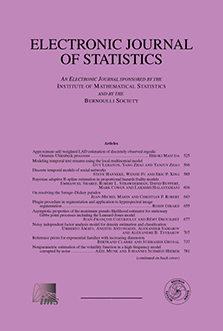Abstract
In statistical practice, whether a Bayesian or frequentist approach is used in inference depends not only on the availability of prior information but also on the attitude taken toward partial prior information, with frequentists tending to be more cautious than Bayesians. The proposed framework defines that attitude in terms of a specified amount of caution, thereby enabling data analysis at the level of caution desired and on the basis of prior information. The caution parameter represents the attitude toward partial prior information in much the same way as a loss function represents the attitude toward risk. When there is very little prior information and nonzero caution, the resulting inferences correspond to those of the candidate confidence intervals and p-values that are most similar to the credible intervals and hypothesis probabilities of the specified Bayesian posterior. On the other hand, in the presence of a known physical distribution of the parameter, inferences are based only on the corresponding physical posterior. In those extremes of either negligible prior information or complete prior information, inferences do not depend on the degree of caution. Partial prior information between those two extremes leads to intermediate inferences that are more frequentist to the extent that the caution is high and more Bayesian to the extent that the caution is low.
Citation
David R. Bickel. "Controlling the degree of caution in statistical inference with the Bayesian and frequentist approaches as opposite extremes." Electron. J. Statist. 6 686 - 709, 2012. https://doi.org/10.1214/12-EJS689
Information





